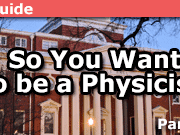Interview with a Physics Mentor: Nugatory
Give us a little background on yourself?
I was born in Washington DC, grew up in Texas, bachelor’s in physics from Harvard in 1978 but found a career in system software instead. Son of two law professors and grandson of a third, raised a Quaker although it didn’t stick, keep a small fleet of well-rusted Italian sports cars on the road, play duplicate bridge and work with wood, started back into physics as I neared retirement. Two daughters, one took her degree in physics and the other a joint major in art history and computer science, both working in NYC in the intersection of high finance and high tech.
What about physics interested you and why did you decide to study it?
For as long as I can remember I’ve been fascinated by science, and physics is science in its purest form. I can’t explain that fascination, but it’s something that probably most of the PF membership already understands. Growing up, I read everything I could, and of course a lot of it was science writing…. Isaac Asimov and many others. That’s a good way of feeding an interest. Then in high school I stumbled across a paperback of Einstein’s “Relativity: The special and general theory” and the hook was well and thoroughly set – the precision of Einstein’s presentation was eye-opening. It is sadly outdated now and mostly of historical interest, but in its time it was one of the best popularizations ever written. I still have that copy, although it’s falling apart.
What was your experience like studying physics at Harvard in the 70s? How did you end up doing system software as a career?
Well, I wouldn’t have ended up as a software developer if the experience studying physics had been any great success :) I aced the undergraduate classes through intro QM and then hit a wall. There were many factors at work, some of which I didn’t appreciate until many years later – maybe even when I started thinking about your question. But by my junior year I was more comfortable hanging out with the much smaller computer science crowd (of course back then it wasn’t called “computer science” – it was a branch of applied mathematics or “AppleMath”). Also, the ratio of immediate gratification per unit of intellectual energy expended is higher when playing with computers than with physics, and at age 20 the concept of delayed gratification had not fully sunk in.
I finished my bachelor’s in physics and started interviewing for OS programming jobs. Frankly, at the time it felt to me like one of the all-time great scams of history… As a student I expected to pay schools to let me play with their computers, but these people were prepared to pay me to play with their computers! And after nearly forty years… I think it turned out just fine… Although my then-girlfriend didn’t form quite the right mental image when she heard that I was “hacking on the Eunuchs’ colonel”.
Your parents were law professors, how did they shape your way of thinking?
Well, it made for challenging dinner-table conversation while I was growing up – I spent a fair amount of time on the receiving end of professionally administered Socratic dialogs.
And it did shape the way that I think. I learned that principles always apply, not just when you want them to apply – for example, the American constitution protects all speech, not just speech that the voters want to hear spoken. I also learned that if it’s easy and obvious, like in that example, I haven’t gotten to the hard part yet (and the Socratic interrogators are about to rake me over the coals). Most Americans will have heard the cliche that the right of freedom of speech doesn’t create a right to shout “Fire!” in a crowded theater – but why not? How is that not covered by “all speech”? It’s obvious common sense, but can I articulate the logically coherent principle behind it? Clearly enough so that I could apply the rule in some new and unanticipated situation? If you think this will be easy you haven’t spent enough time examining the corner cases, and you haven’t really thought the problem through yet.
This sense that clarity and completeness come from working through the hard corner cases… That’s applicable everywhere in life.
Your daughter is now studying physics. What are your observations and comparisons with her studies to when you were in school?
Actually, she’s done studying physics. She graduated with a bachelor’s degree a few years back and is now out earning a living in New York. While she was still in school she once remarked that the key to any relativity paradox is to “find where they’re trying to sneak ‘at the same time’ past you, and stop them”. I’m pretty sure that I’ve used that line here at PF.
The thing that most struck me is how much the undergraduate physics curriculum has not changed. By the time you’ve worked through classical mechanics, special relativity, E&M, waves, QM, statistical mechanics, the Hamiltonian and Lagrangian formulations of mechanics, and added a few electives, you’ve just filled a four-year undergraduate program, today or forty years ago. It takes four years just to build a foundation. I was a bit startled when I mentioned learning E&M from Purcell’s textbook and she said that she was using it too – but why not? It’s not as if intro E&M has changed a lot in the last thirty-odd years. I did get my lectures from Purcell himself because he was teaching Harvard’s intro E&M while I was there, but at that level you aren’t going hear anything you wouldn’t hear from a grad student.
Of course some stuff has changed. When I learned QM the undergraduates weren’t allowed anywhere near any interpretational questions (although early tests of Bell’s inequality were going on in the basement). She, on the other hand, was introduced to decoherence, Bell’s theorem, and quantum computing. These are areas where our understanding has advanced substantially over the past few decades.
What drew you back to physics after retiring?
I never really left physics because I never lost the adolescent fascination that brought me to it in the first place. I kept all my college textbooks and every once in a while I would open them up and see if I could still do the problems (often I couldn’t. You lose mathematical fluency if you don’t use it regularly). So “drawn back” is the wrong way of thinking about it – it’s more that I had more time to spend on physics.
The internet is also a huge help. Feeling a bit shaky about how angular momentum adds and why we have the singlet and triplet states? Googling for “Quantum mechanics angular momentum addition” will bring up dozens of presentations at various levels and you can pick and choose the one that’s right for you. In the old days, if the right book wasn’t in your bookshelf you were stuck.
How did you find your way to PF and what about the community are you most proud of?
Weirdly, a crackpot – Joy Christian – brought me here. Someone had given me a copy of Louisa Gilder’s “The Age of Entanglement”, which I highly recommend. That started me poking around the web looking for new results since it was published in 2008, and Christian’s stuff was getting a lot of air time then. It didn’t make sense to me and when I tried finding out why, Google led me to https://www.physicsforums.com/threads/joy-christian-disproof-of-bells-theorem.482657/. I liked what I saw, so I stuck around.
I’m reluctant to use the word “proud” (it goeth before a fall, and all that), but I can talk about the things I liked that made me stick around, and of course as a mentor I try to encourage these things. I like that we have interesting and productive discussions at all levels. I like that we can engage and hold the interest of qualified people, across a very wide range of topics. I like that some of our most prolific members are also genuinely gifted teachers, even if they don’t teach for a living. Most of all, however, I like that PF offers the real thing – quantum mechanics without the woo, relativity from the foundations up instead just leaving time dilation and length contraction floating unsupported in the air, and many other examples.
It’s clear that from the posts we see every day that many people want a deeper understanding than popularizations offer…. and where are they going to get that? PF is pretty much unique in its ability to meet this need for the serious non-professional (like me), and it’s the community that makes this possible.
Tell us about your collection of cars and how you got interested in them.
I think the interest traces back to when Ferrari was trying to build brand awareness in the US and ran full-page ads featuring their 308 GTB in Newsweek magazine. The 308 remains one of the most beautiful and iconic cars ever built – it has aged much more gracefully than the TV show Magnum PI it starred in. I couldn’t afford one, but I knew I wanted an Italian mid-engine car and that’s how I ended up owning a Fiat X1/9 (if there were such a thing as a gearhead inside joke, it would be an X1/9 with a vanity plate reading “154 GTSi” – I didn’t do that, but I know someone who did) after I landed my first real job and could afford a car. But then I married and had children and a house, and life became all about car seats and practical sedans for many years.
It stayed that way until maybe ten years ago when my wife asked me what it was that I had driven when I first got out of college. I said “Fiat X1/9”, and she said that there was one on ebay for with about three hours to go, no bids, and no reserve. That may have been a bad move on her part, but it’s done – I own four now in various stages of repair, and that’s not counting the ones bought and reduced to parts. After years of working with computer software, there is something deeply satisfying about working with stuff that is completely tangible – we’re talking breaker points and vacuum gauges here, not electronic ignitions and digital readouts. If it’s not working right you feel it, and when you get it right you know what you did and why it made a difference.
Five years ago things came full circle when I added a 308 to the fleet. It has rust too, just less than the Fiats.
What advances in physics and technology are you keeping tabs on and most looking forward to?
I actually don’t spend much time trying to keep tabs on new advances in physics. I can count on the PF membership, including some who are much more plugged into current research efforts than I am, to post about anything new, important, and interesting (or any two out of those three, which is good enough). It would be exciting to see something that changes our understanding of quantum mechanics the way that Bell’s inequality or decoherence did, but that’s sort of like saying that it would be exciting to see lightning strike – true, but not something you can watch and keep tabs on.
Technology I watch more closely. We are nowhere near done digesting the social and economic effects of computing and communication technologies, and that’s after working at it for a half-century. These days automation is getting a lot of press (think drones, self-driving cars, …), and that’s a big deal for you if you’re the person being replaced by a machine. However the really big impacts for everyone come from social and economic interaction because that’s what we do every day. I don’t pay much attention to how these technologies are reshaping social interactions (people tell me that Tinder is huge – I’ll take their word for it) but I do care about economic interactions. If I were to finger the two technologies that are most likely to make the most difference for the most people over the next few years…. I’d go with micropayments and 3D printing.
I have a BS in Information Sciences from UW-Milwaukee. I’ve helped manage Physics Forums for over 22 years. I enjoy learning and discussing new scientific developments. STEM communication and policy are big interests as well. Currently a Sr. SEO Specialist at Shopify and writer at importsem.com








What a wonderfully interesting story!!!! I might comment that, for some reason, I always pictured you living and working in England. Go figure.
I like this passage:"This sense that clarity and completeness come from working through the hard corner cases… That’s applicable everywhere in life."Great little motivator. P.S How do I quote something properly from the actual interview?
[QUOTE="atyy, post: 5493110, member: 123698"]So what is the logically coherent principle behind the lack of protection for shouting "Fire!" in a crowded theatre?”https://en.wikipedia.org/wiki/Shouting_fire_in_a_crowded_theater
So what is the logically coherent principle behind the lack of protection for shouting "Fire!" in a crowded theatre?
“Although my then-girlfriend didn’t form quite the right mental image when she heard that I was “hacking on the Eunuchs’ colonel”.”Priceless!